Triple negative breast cancer – symptoms, causes, treatments, breast cancer vaccine and early clinical trials
What is Triple negative breast cancer disease?
Triple negative breast cancer (TNBC) is a rare and aggressive type of breast cancer that does not have receptors for estrogen, progesterone or HER2 (human epidermal growth factor receptor 2), which are common targets for hormone therapy or targeted drugs.
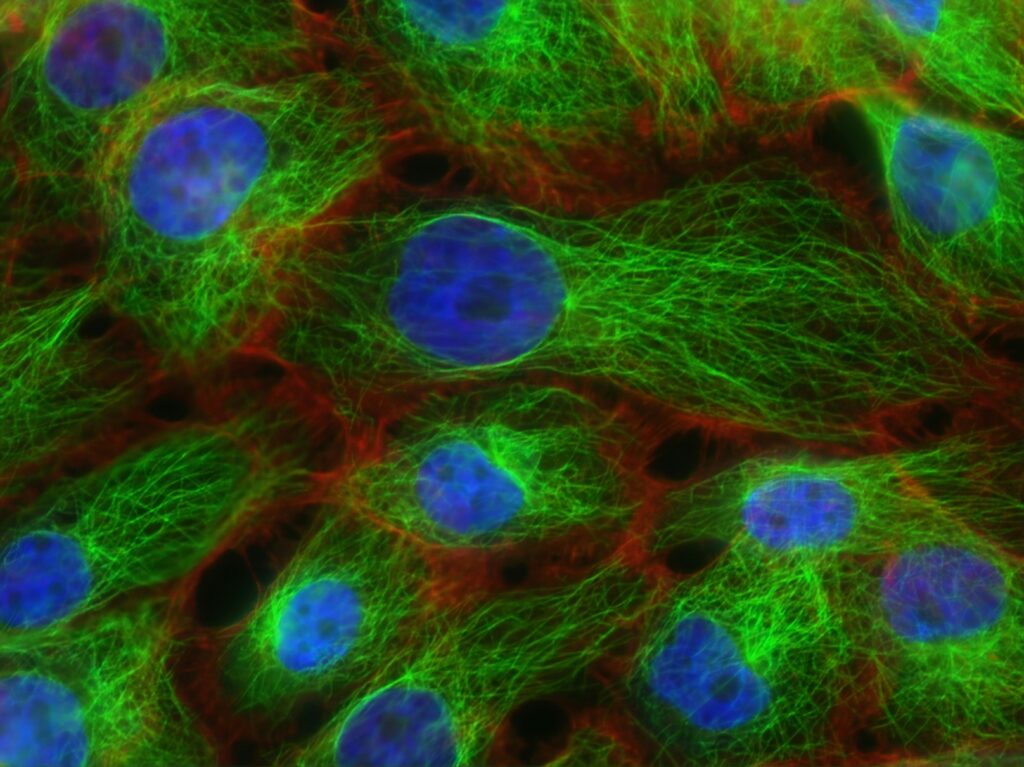
Breast cancer stages are:
- Stage 0: The cancer is confined to the breast ducts.
- Stage I: The cancer has reached the nearby breast tissue.
- Stage II: The tumor is up to 5 cm across and may have spread to underarm lymph nodes.
- Stage III: The cancer has grown beyond the breast and may have affected nearby tissue and lymph nodes, but not distant organs. This is called locally advanced breast cancer.
- Stage IV: The cancer has metastasized to other parts of the body, such as bones, liver, lungs or brain.
TNBC is usually treated with surgery, chemotherapy, radiation and sometimes immunotherapy or other new therapies. TNBC tends to grow and spread faster than other types of breast cancer and has a worse prognosis.
Triple negative breast cancer symptoms
The symptoms of triple-negative breast cancer are similar to other types of breast cancer and may include:
- A new lump or mass in the breast.
- Swelling, pain, redness, or irritation in the breast or nipple.
- Changes in the size, shape, texture, or color of the breast or nipple.
- Nipple retraction (turning inward) or discharge that is not breast milk.
- Swollen lymph nodes under the arm or near the collarbone.
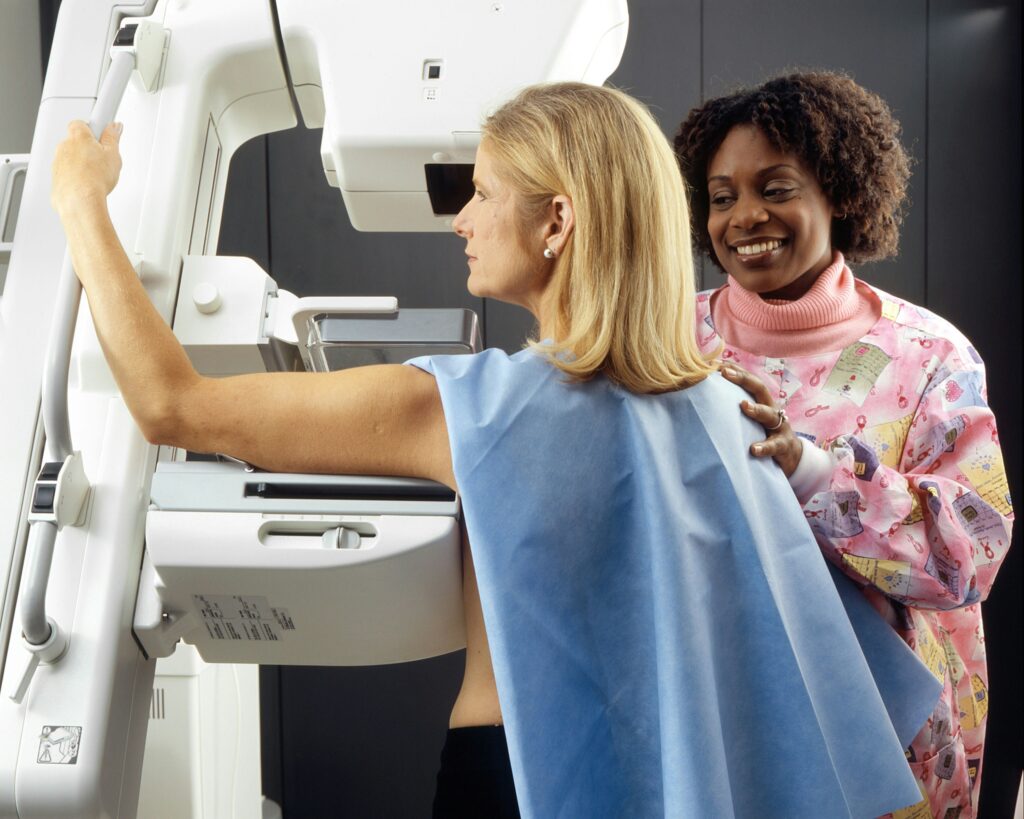
Triple negative breast cancer or TNBC skin spot
Triple negative breast cancer skin spots are usually firm, painless, small lumps (nodules) or a number of lumps of different sizes that form on or just below the skin. They can also cause changes in the color, texture or appearance of the skin or nipple. TNBC skin spots are more likely to occur near the site of the original breast cancer, such as the chest wall, the surgical scar or the abdomen, but they can also appear on other areas of the body, such as the scalp, neck, back or arms.
TNBC skin spots are diagnosed by a physical examination and a punch biopsy, which is a procedure that takes a small sample of tissue from the affected area. The biopsy is then tested for hormone and protein receptors to confirm the diagnosis of TNBC. A CT scan may also be done to check for any signs of the cancer spreading to other parts of the body.
If you notice any of these symptoms, you should see your healthcare provider as soon as possible for a diagnosis and treatment. Early detection is important for improving the prognosis of triple-negative breast cancer
What causes triple negative breast cancer?
The exact cause of TNBC is not known, but it is strongly associated with certain gene mutations, especially BRCA1. BRCA1 is a gene that normally helps prevent cells from growing out of control, but when it is mutated, it increases the risk of breast, ovarian, prostate and other cancers. About 70% of women with an inherited BRCA1 mutation who develop breast cancer have TNBC. However, not everyone who has this mutation gets cancer, and not everyone who has TNBC has this mutation, so there are other factors involved.
Some other risk factors for TNBC include:
- Age: TNBC is more common in women under 40 years old.
- Ethnicity: TNBC is more prevalent in African American and Hispanic women than in White or Asian women.
- Weight: Being overweight or obese can increase the risk of TNBC.
- Family history: Having a relative with breast cancer, especially TNBC, can raise the risk of TNBC.
- Oral birth control: Using oral contraceptives for more than a year may increase the risk of TNBC in women under 45 years old.
What fuels triple negative breast cancer?
According to research, TNBC cells may also depend on fat as a fuel source to grow and survive. This means that blocking the fat metabolism pathway could be a potential way to treat TNBC. However, this is still an experimental approach, and more studies are needed to confirm its safety and effectiveness.
Is chemo worth it for triple negative breast cancer? How bad is chemo for Triple negative breast cancer?
Chemotherapy is an important treatment for triple-negative breast cancer (TNBC), because it is often more effective against fast-growing and aggressive cancer cells. However, chemotherapy also has side effects, such as hair loss, nausea, fatigue, infection and nerve damage. The benefits and risks of chemotherapy depend on many factors, such as the stage and grade of the cancer, the type and dose of the drugs, the response to treatment, the age and overall health of the person, and the personal preferences and goals of the person.
According to Cancer.org, chemotherapy can be used in different ways for TNBC:
- Before surgery (neoadjuvant chemotherapy) to shrink the tumor and make it easier to remove, and to see how the cancer responds to the drugs.
- After surgery (adjuvant chemotherapy) to lower the chance of the cancer coming back or spreading to other parts of the body.
- For advanced or metastatic TNBC that has spread beyond the breast and nearby lymph nodes, to control the growth and symptoms of the cancer, and to improve the quality and length of life.
Chemotherapy may also be combined with other treatments, such as immunotherapy, targeted therapy or radiation therapy, to enhance their effects or overcome resistance. For example, some TNBCs may respond well to immunotherapy drugs that boost the immune system’s ability to fight cancer, especially if they have a protein called PD-L1 on their surface. Some TNBCs may also benefit from targeted drugs that block a specific enzyme called PARP, especially if they have a mutation in the BRCA genes that normally help repair DNA damage.
The decision to have chemotherapy for TNBC should be made after discussing with your healthcare provider about your specific situation and options. They can help you weigh the pros and cons of chemotherapy and answer any questions or concerns you may have. You can also seek a second opinion or join a clinical trial to explore new and promising treatments for TNBC.
Triple Negative Breast Cancer recurrence rates
According to medicalnewstoday triple-negative breast cancer (TNBC) has higher recurrence rates than most other types of breast cancer, as follows:
- Studies suggest that about 75% of recurrences happen within 3 years of diagnosis, and most occur within 5 years.
- A 2018 Brazilian study found that in people with TNBC, cancers that had spread to the lymph nodes, were at later stages, or both, were associated with higher recurrence rates.
- The average time it takes for TNBC to recur is 19–40 months, compared to 35–67 months for other types of breast cancer.
Recurrence rates may vary depending on the stage, location and extent of the cancer, the response to treatment, the age and overall health of the person, and other factors.
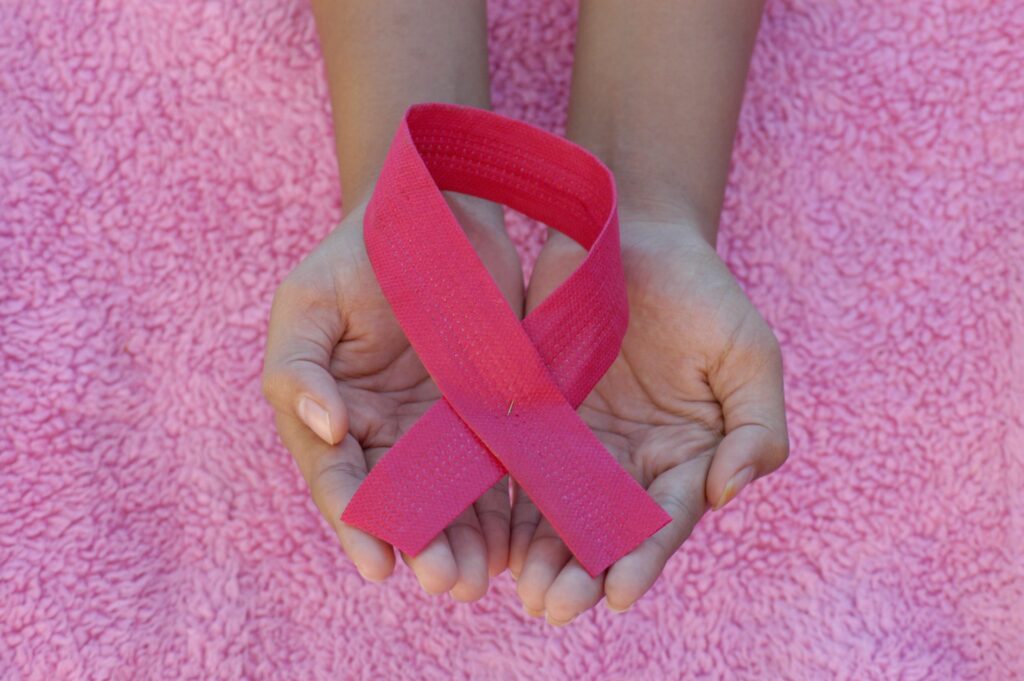
Preventing recurrence of triple negative breast cancer
There is no way to completely prevent TNBC, but some general steps to reduce the risk of breast cancer include:
- Maintaining a healthy weight and being physically active as this may lower the risk of breast cancer and improve your overall well-being.
- Knowing your family medical history and getting genetic testing if you have a high risk of BRCA mutations.
- Following your treatment plan and having regular follow-up exams and tests to monitor your health and detect any signs of recurrence early.
- Monitoring your breast health and getting regular mammograms and clinical exams.
- Avoiding or limiting alcohol consumption and smoking
- Taking hormone therapy, if prescribed, to lower the risk of recurrence in people who have hormone-sensitive breast cancer cells in addition to TNBC cells.
- As per verywellhealth.com, taking a low dose of Xeloda (capecitabine), a chemotherapy drug, for one year after surgery and standard chemotherapy, as this may reduce the risk of recurrence in people with early-stage TNBC
- Eating a balanced diet that includes plenty of fruits, vegetables, whole grains, lean protein, and healthy fats, and limiting processed foods, red meat, alcohol, and sugar, as this may help boost your immune system and prevent inflammation.
- Managing stress and practicing relaxation techniques, such as meditation, yoga, or deep breathing, as this may help improve your mood and quality of life.
Also read: Best Health and Wellness Podcasts in 2024
- Seeking support from your family, friends, healthcare team, or support groups, as this may help you cope with the emotional and physical challenges of living with TNBC.
Stage 4 triple negative breast cancer survival rate
According to medicalnewstoday, the five-year relative survival rate for stage 4 TNBC is about 12%. This means that about 12% of people with stage 4 TNBC are expected to still be alive five years after diagnosis. However, this is only an estimate based on data from people who were diagnosed and treated several years ago, and it may not reflect the current outlook or individual factors. Survival rates also vary depending on the location and extent of the cancer, the response to treatment, the age and overall health of the person, and other factors.
Treatment for stage 4 TNBC may extend a person’s life and improve their quality of life by reducing symptoms and complications. There are also ongoing clinical trials and research to find new and better ways to treat TNBC. You can talk to your healthcare provider about your specific prognosis and treatment options. They are your best source of information and support.
What is the new treatment for triple negative breast cancer?
Below are some of the promising new drugs and treatments for TNBC that are currently in the pipeline or have been recently approved. However, more research and clinical trials are needed to confirm their safety and effectiveness, and to identify the best candidates and combinations for each patient. However, please consult your healthcare provider about your specific situation and options, and ask about the possibility of joining a clinical trial to access new and experimental therapies for TNBC. They are your best source of information and support.
According to Cleveland clinic article some of the new drugs and treatments for TNBC that are in development or have been approved recently are:
- Datopotomab deruxtecan (Dato-DXd) and trastuzumab duocarmazine: These are antibody-drug conjugates (ADCs) that deliver a toxic payload to cancer cells that express a specific protein. In a small 2023 study, Dato-DXd showed a 32% response rate in TNBC patients who had received at least two prior therapies. Trastuzumab duocarmazine is currently in phase 3 trials for TNBC and other HER2-low breast cancers.
- Sacituzumab govitecan (Trodelvy) and trastuzumab deruxtecan (Enhertu): These are also ADCs that target different proteins on TNBC cells. Trodelvy was approved by the FDA in 2020 for TNBC that has spread and not responded to other treatments, and it showed a 33% response rate and a 5.5-month median survival benefit in a phase 3 trial2. Enhertu was approved by the FDA in 2019 for HER2-positive breast cancer, and it is being tested in a phase 3 trial for TNBC and other HER2-low breast cancers.
- Pembrolizumab (Keytruda): This is an immunotherapy drug that blocks a protein called PD-1, which helps cancer cells evade the immune system. Pembrolizumab was approved by the FDA in 2021 for high-risk, early-stage TNBC in combination with chemotherapy as neoadjuvant and adjuvant treatment, and it showed a 37% reduction in the risk of recurrence or death in a phase 3 trial.
- CDDD11-8: This is a novel peptide drug that inhibits an enzyme called CDK9, which is involved in cancer cell growth and survival. CDDD11-8 was developed by researchers at the University of South Australia and the University of Adelaide, and it showed potent anti-tumor effects in pre-clinical models of TNBC, without any toxic side effects. CDDD11-8 also enhanced the immune system’s ability to recognize and attack the cancer.
What is the breast cancer vaccine shot? How do you vaccinate against cancer?
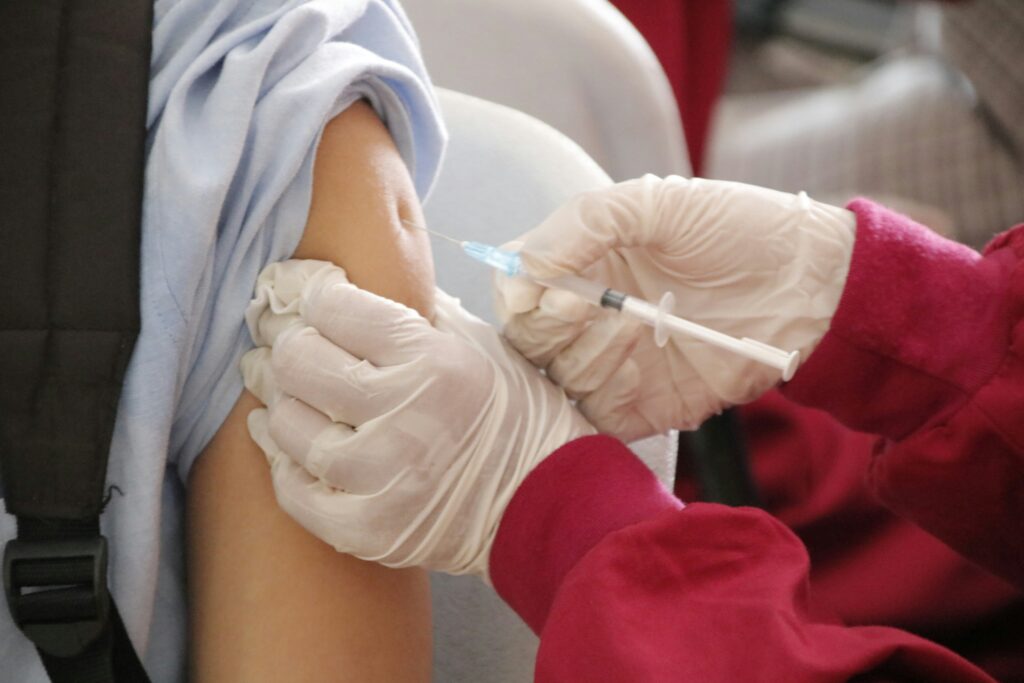
There are two types of breast cancer vaccines: preventive and therapeutic.
Preventive vaccines can protect healthy people from getting certain cancers caused by viruses, such as the HPV vaccine and the hepatitis B vaccine. These vaccines work by boosting the immune system to fight off the viral infections that can lead to cancer.
Therapeutic vaccines can help people who already have breast cancer by stimulating the immune system to recognize and attack the cancer cells. These vaccines are a form of immunotherapy that uses molecules or cells from the cancer or the patient to trigger an immune response. Therapeutic vaccines are still in development and testing, and none of them are currently available for public use.
When will triple negative breast cancer vaccine be available?
Researchers are developing and testing a vaccine for triple negative breast cancer that aims to prevent it from recurring or developing in those at high risk.
The TNBC vaccine targets a protein called alpha-lactalbumin, which is normally produced only during lactation, but is also found in some TNBC cells. The vaccine stimulates the immune system to recognize and destroy the TNBC cells that express this protein.
Also read: Let’s Eradicate Breast Cancer – Pink Eraser Project and Guidelines for Breast Cancer Screening
The vaccine has been approved by the FDA for human clinical trials, which are currently underway at the Cleveland Clinic. The phase 1 trial involves 18-24 participants who have been treated for early-stage TNBC and are tumor-free, but have a high risk of recurrence. The trial will test the safety and immune response of the vaccine, which is given as three shots every two weeks.
If the phase 1 trial is successful, the vaccine will move on to phase 2/3 trials, which will include more participants and evaluate the effectiveness of the vaccine in preventing TNBC recurrence or onset. The researchers hope that the vaccine will be available in about five years, if the studies go well.
What is the HER2 vaccine for breast cancer?
The HER2 vaccine is a type of immunotherapy that aims to prevent or treat breast cancer that is positive for the HER2 protein, which makes the cancer cells grow faster and more aggressively. The HER2 vaccine works by stimulating the immune system to recognize and attack the cancer cells that express the HER2 protein. There are several HER2 vaccines that are being tested in clinical trials, but none of them are currently available for general use. Some of the HER2 vaccines that are under development are:
- NeuVax: This vaccine combines a part of the HER2 protein with a drug called GM-CSF that boosts the immune response. It is being tested as a preventive vaccine for people who have a high risk of developing HER2-positive breast cancer, or as a treatment for people who have early-stage HER2-positive breast cancer that has been treated with surgery and chemotherapy.
- Trastuzumab duocarmazine: This vaccine is an antibody-drug conjugate that delivers a toxic payload to the cancer cells that have the HER2 protein on their surface. It is being tested as a treatment for people who have advanced or metastatic HER2-positive breast cancer that has not responded to other therapies.
- Trastuzumab deruxtecan: This vaccine is also an antibody-drug conjugate that targets the HER2 protein and releases a potent chemotherapy agent inside the cancer cells. It is approved by the FDA for people who have advanced or metastatic HER2-positive breast cancer that has not responded to other therapies, and it is being tested for people who have early-stage or HER2-low breast cancer.
- Pembrolizumab: This vaccine is an immunotherapy drug that blocks a protein called PD-1, which helps the cancer cells evade the immune system. It is approved by the FDA for people who have high-risk, early-stage HER2-positive breast cancer in combination with chemotherapy, and it is being tested for people who have advanced or metastatic HER2-positive breast cancer.
Moderna cancer vaccine. Mrna cancer vaccine
Moderna is currently developing a personalized cancer vaccine, called mRNA-4157 or V940, in collaboration with Merck. Moderna is also exploring the use of mRNA technology for other types of cancer, such as lung, breast, ovarian, and prostate cancer.
This vaccine is designed to target specific mutations or changes in each patient’s tumor, and to stimulate the immune system to attack the cancer cells. The vaccine is made by sequencing the tumor and normal tissue of each patient, and identifying the most relevant mutations that can produce neoantigens, which are abnormal proteins that can be recognized by the immune system. The vaccine then encodes up to 34 neoantigens for each patient, and delivers them to the cells using a lipid nanoparticle.
Moderna and Merck have recently announced the results of a phase 2 trial of their cancer vaccine, in combination with an immunotherapy drug called pembrolizumab (Keytruda), for patients with advanced melanoma, a type of skin cancer. The trial showed that the vaccine reduced the risk of recurrence or death by 44% compared to pembrolizumab alone, and did not cause any serious side effects. The vaccine also received a breakthrough therapy designation from the US Food and Drug Administration (FDA), which means that it has shown promising results and can be fast-tracked for approval. The vaccine is now being tested in a phase 3 trial, which will enroll more than 1,000 patients with high-risk melanoma who have undergone surgery.
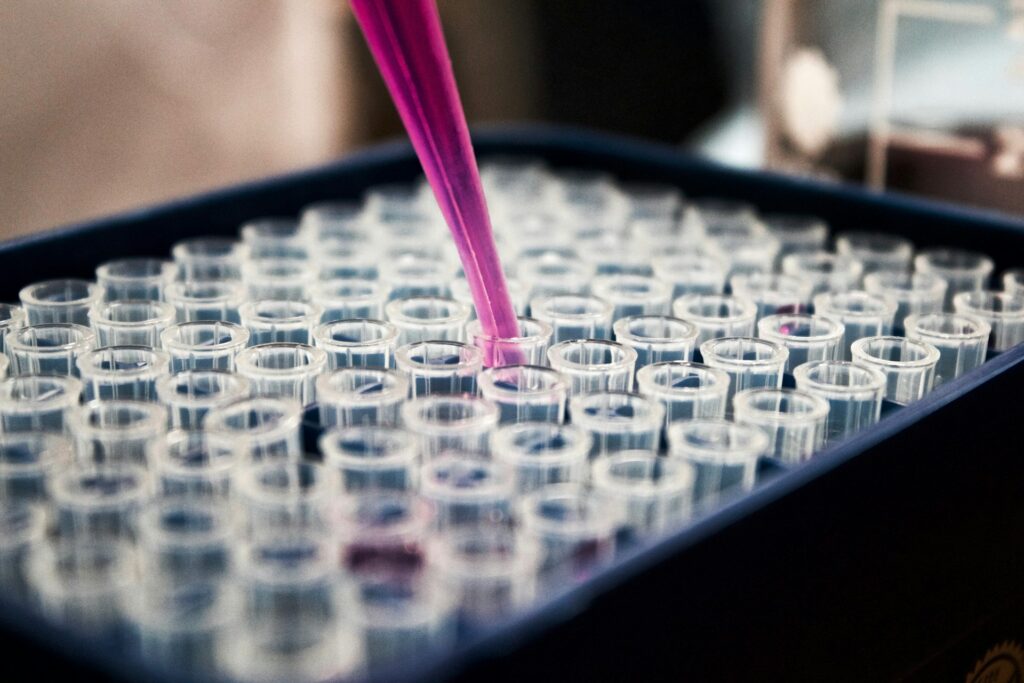
Sources or learn more at:
- Org – Triple-negative Breast Cancer
https://www.cancer.org/cancer/types/breast-cancer/about/types-of-breast-cancer/triple-negative.html
- gov – Triple-Negative Breast Cancer
https://www.cdc.gov/cancer/breast/triple-negative.htm
- Wikipedia – Triple-negative breast cancer
https://en.wikipedia.org/wiki/Triple-negative_breast_cancer
- Microsoft – Q&A: Breast Cancer
- com – What are the Symptoms of Triple-Negative Breast Cancer?
https://www.healthline.com/health/triple-negative-breast-cancer-symptoms
- Cleveland Clinic – Triple-Negative Breast Cancer
https://my.clevelandclinic.org/health/diseases/21756-triple-negative-breast-cancer-tnbc
- com – Triple-Negative Breast Cancer (TNBC)
https://www.webmd.com/breast-cancer/triple-negative-breast-cancer
- Breast Cancer now – Secondary (metastatic) breast cancer in the skin
- com – What Causes Triple-Negative Breast Cancer?
https://www.healthline.com/health/breast-cancer/what-causes-triple-negative-breast-cancer
- Verywellhealth – Causes of Triple-Negative Breast Cancer
https://www.verywellhealth.com/triple-negative-breast-cancer-causes-4772302
- Org – Triple Negative Breast Cancer
https://www.nationalbreastcancer.org/triple-negative-breast-cancer/
- UCSF – Triple-Negative Breast Cancers Depend on Fat as Fuel, Research Shows
- com – What is stage 4 triple-negative breast cancer?
https://www.medicalnewstoday.com/articles/stage-4-triple-negative-breast-cancer
- com – Triple-Negative Breast Cancer
https://www.healthline.com/health/triple-negative-breast-cancer-outlook-survival-rates-stage
- Mybcteam – Stage 4 Triple-Negative Breast Cancer Survival Rates
https://www.mybcteam.com/resources/stage-4-triple-negative-breast-cancer-survival-rates
- com – Prognosis of Triple-Negative Breast Cancer
https://www.verywellhealth.com/triple-negative-breast-cancer-prognosis-4778440
- org – Treatment of Triple-negative Breast Cancer
https://www.cancer.org/cancer/types/breast-cancer/treatment/treatment-of-triple-negative.html
- Mayoclinic – Understanding triple-negative breast cancer and its treatment
- org.uk – Triple negative breast cancer
- Moffitt – Chemotherapy for Triple Negative Breast Cancer
https://www.moffitt.org/cancers/triple-negative-breast-cancer/treatment/chemotherapy/
- com – Triple-Negative Breast Cancer Recurrence After Mastectomy
https://www.verywellhealth.com/triple-negative-breast-cancer-recurrence-after-mastectomy-6746068
- Mayoclinic – Recurrent breast cancer
https://www.mayoclinic.org/diseases-conditions/recurrent-breast-cancer/symptoms-causes/syc-20377135
- com – Triple-negative breast cancer survival and recurrence rates
https://www.medicalnewstoday.com/articles/324272
- com – You Ask, We Answer: What is the outlook for people with triple-negative breast cancer?
https://www.medicalnewstoday.com/articles/triple-negative-breast-cancer-outlook
- org – New research highlights unprecedented targeted approach to treating triple-negative breast cancer
- FDA – FDA Approves New Therapy for Triple Negative Breast Cancer That Has Spread, Not Responded to Other Treatments
- com – Drug Combo Improved Survival For Women With Triple-Negative Breast Cancer
- FDA – FDA approves pembrolizumab for high-risk early-stage triple-negative breast cancer
- Science Daily – Possible new treatment for triple-negative breast cancer
https://www.sciencedaily.com/releases/2023/09/230918153233.htm
- Medicalnewstoday – Trials begin for first vaccine candidate to prevent triple-negative breast cancer
- ABCNews – Trials begin for first vaccine candidate to prevent triple-negative breast cancer
- verywellhealth – FDA Clears Breast Cancer Vaccine For Clinical Trials
https://www.verywellhealth.com/breast-cancer-vaccine-greenlit-clinical-trials-5094403
- verywellhealth – Breast Cancer Vaccines: Types, Goals, and Availability
https://www.verywellhealth.com/breast-cancer-vaccines-6832018
- Frontiers – Breast Cancer Vaccines: Disappointing or Promising?
https://www.frontiersin.org/articles/10.3389/fimmu.2022.828386/full
- verywellhealth – Breast Cancer Vaccine Shows Promise in Early Human Trial
https://www.verywellhealth.com/her2-breast-cancer-vaccine-phase-i-trial-6832146
- BMC – Application of HER2 peptide vaccines in patients with breast cancer: a systematic review and meta-analysis
https://cancerci.biomedcentral.com/articles/10.1186/s12935-021-02187-1
- com – Vaccine Treatment for Metastatic Breast Cancer
https://www.webmd.com/breast-cancer/metastatic-breast-cancer-vaccine-treatment
- BBC – Vaccine Treatment for Metastatic Breast Cancer
https://www.bbc.com/news/health-63959843
- Nature medicine – Personalized anti-cancer vaccine combining mRNA and immunotherapy tested in melanoma trial
https://www.nature.com/articles/d41591-023-00072-0
- com – Moderna’s mRNA Skin Cancer Vaccine Shows Early Promise in a New Study
https://time.com/6240538/mrna-cancer-vaccine-moderna/
- org – Cancer Vaccines: The Types, How They Work, and Which Cancers They Treat
- net – What are Cancer Vaccines?
- Wikipedia – Cancer Vaccine
https://en.wikipedia.org/wiki/Cancer_vaccine
- National Geographic – cancer-vaccines-are-showing-promise-prostate-colon-breast






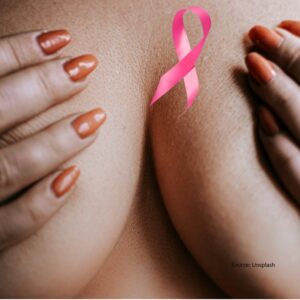








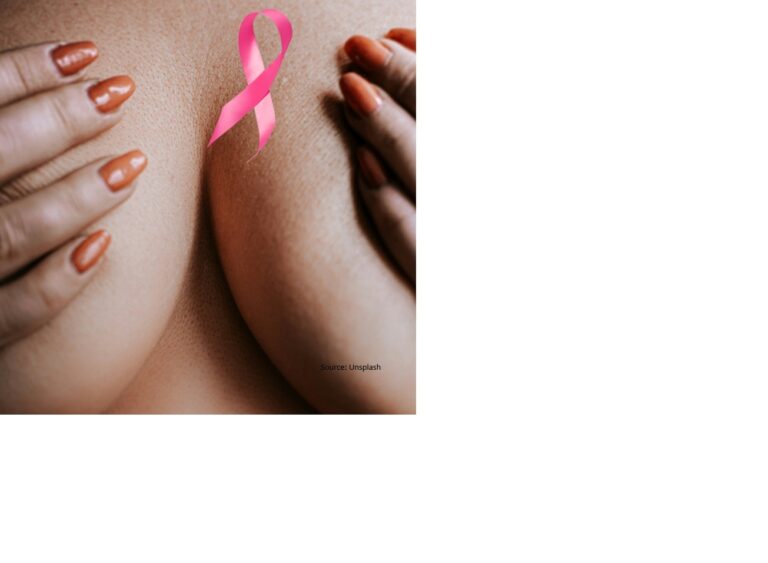
+ There are no comments
Add yours